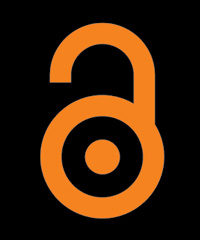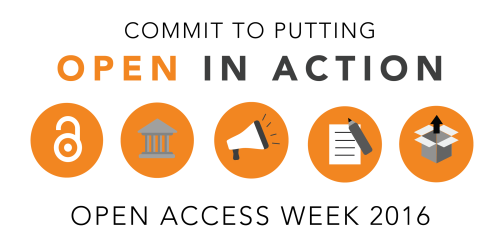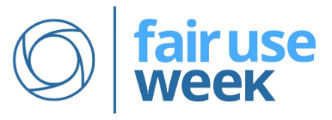Post Tagged with: "UCSF"
-
Open Alternatives to Subscription Content
The University of California Libraries are committed to seamlessly connecting UC faculty, students, and staff with research collections. While established tools such as UC-eLinks for paywalled/subscription literature and Request Interlibrary Loan Service for unsubscribed content have been connecting readers with scholarly content for decades, a range of new tools have emerged in recent years to improve access to and discovery of both subscription and open access (OA) publications. Paywalled content requires subscriber authentication or pay-per-view for unsubscribed content, whereas OA content is freely accessible to all readers. While the majority of scholarly publications are still published behind a paywall, the […]
-
UC campuses celebrate Open Access Week 2018
This year, international Open Access Week is October 22-28. The theme, “Designing Equitable Foundations for Open Knowledge,” was chosen to reflect a scholarly system in transition, according to Nick Shockey, Director of Programs & Engagement at SPARC. “While governments, funders, universities, publishers, and scholars are increasingly adopting open policies and practices, how these are actually implemented is still in flux. As open becomes the default, all stakeholders must be intentional about designing these new, open systems to ensure that they are inclusive, equitable, and truly serve the needs of a diverse global community.” The University of California Libraries have planned […]
-
UC campuses celebrate Open Access Week 2017
This year, international Open Access Week is October 23-29.. The theme, “Open in Order to…,” was chosen, according to Heather Joseph, Executive Director of SPARC, to highlight the many benefits of open access for different people, including “increasing citation counts, enabling anyone to learn from the latest scholarship, or accelerating the translation of research into economic gains.” The University of California Libraries have planned a variety of events this year in order to explore and celebrate issues related to open access. Find one near you!
-
Check out all the great activities UC libraries are hosting for Open Access Week
October 24-30, 2016 is international Open Access Week. This year’s theme is “Open in Action,” which was chosen to “focus on the small steps everyone can take to make openness in research a reality,” said Heather Joseph, Executive Director of SPARC. “This year’s theme will help showcase these actions, the individuals who are leading by example, and the ways this openness advances science and scholarship.” The University of California Libraries have a planned a greater number and wider variety of events this year than ever before in order to explore and celebrate issues related to open access.
-
Celebrate Fair Use Week 2016
This week UC Libraries join other organizations around the world in celebrating Fair Use Week, which honors the important doctrines of fair use in the United States and fair dealing in Canada and other jurisdictions. It’s a great time to learn about all the ways in which this important exception to the rights of copyright holders enhances our lives both inside and outside the university.
-
UC Launches Robust Publication Management System in Support of Open Access Policy
By fall of 2015, all UC Senate faculty will have access to a new publication management system that searches scholarly databases for faculty article records, emails authors when new articles are found, and supports easy deposit of those articles into eScholarship, UC’s open access repository and publishing platform. This “harvesting” system is currently being implemented across the UC campuses in response to the Academic Senate’s call for an efficient mechanism for facilitating faculty participation in the UC Open Access policy. While the initial focus has been on supporting the Open Access Policy, the system also has the ability to connect to […]
-
Experts on Open Educational Resources Visiting Five UC Campuses
The Scholarly Publishing and Academic Resources Coalition (SPARC) is an international alliance of academic and research libraries working to create a more open system of scholarly communication. Two of SPARC’s prominent experts, Nicole Allen and Nick Shockey, will be visiting five UC campuses in whirlwind California tour this May.
-
Meet Rich Schneider
Rich Schneider, UCSF Professor of Orthopaedic Surgery and Open Access champion, was instrumental in rallying UCSF faculty to pass an Open Access policy in May 2012. In this interview, Schneider reflects on this significant milestone and on the larger context of Open Access within the academy. View his perspective on: Why Faculty Should Care About Open Access Beyond Policy: How Can Faculty and Institutions Support Open Access? Faculty Support for the OA Policy at UCSF How We Passed the Policy at UCSF The Economics of Open Access
-
UCSF Implements Open Access Policy
In May, 2012, the UCSF Academic Senate voted to adopt an open access policy that will help make electronic versions of current and future scientific articles freely available to the public. UCSF is the largest scientific institution in the nation to adopt an open-access policy and among the first public universities to do so.
-
Two UCSF Faculty Call for “Unified Actions” From Faculty Regarding Cell Press
In a widely distributed letter, two UC San Francisco faculty call for “unified actions” from faculty regarding Cell Press journals, including: “i) decline to review manuscripts for Cell Press journals; ii) resign from Cell Press editorial boards; iii) cease to submit papers to Cell Press journals; and iv) talk widely about Elsevier and Cell Press pricing tactics and business strategies.” The letter is reported in the Chronicle of Higher Education.







